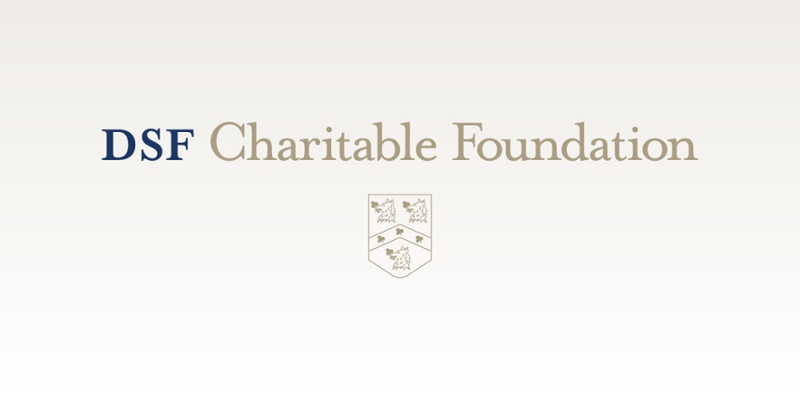MCS Announces First Recipients of DSF Block Grants

The Mellon College of Science has announced the first six projects to be funded under an innovative block grant program for cross-disciplinary foundational science research in the life sciences. The grants are funded through a generous $4 million gift from the DSF Charitable Foundation.
The first round of funding will support two research projects led by early-career or individual investigators in MCS working with collaborators from other Carnegie Mellon colleges and four workshops led by Carnegie Mellon researchers that aim to foster transdisciplinary collaborations. The projects include:
CMU Array: Using Rapid 3D Printing of Metal Nanoparticles to Improve Neuronal Sampling Abilities by an Order of Magnitude
Eric Yttri, assistant professor of biological sciences, and Rahul Panat, associate professor of mechanical engineering, will construct an electrode array that pushes physical and biological boundaries. The array will sample more area than is currently feasible, increasing the number and density of recording sites, which will help to improve our understanding of complex, distributed neural circuits.
Endogenous Biosensors for Continuous Monitoring of Multiple Biomarkers In Vivo
Marcel Bruchez, director of the Molecular Biosensor and Imaging Center (MBIC) and professor of biological sciences and chemistry, and Burak Ozdoganlar, professor of mechanical engineering and associate director of the Engineering Research Accelerator, will develop biosensor tattoos that will take continuous measurements of biomarkers, measuring physiological states in real time. The tattoo arrays could potentially be used to understand the progression of disease and monitor the efficacy of treatments in a non-invasive fashion.
Physics to Pharma: Using Surfactant Driven Flows to Improve Inhaled Therapies — A Translational Workshop
Diseases caused by pulmonary surfactant deficiency or lung obstruction impact significant numbers of people. Organized by Stephen Garoff, professor of physics, Robert Tilton and Todd Przybycien, professors of chemical and biomedical engineering, and Timothy Corcoran, associate professor of medicine and bioengineering at the University of Pittsburgh, this workshop will bring together researchers from science, engineering and clinical settings to discuss research on using surfactant driven flows to speed the development of and improve inhaled therapies to treat these conditions. Workshop participants will co-author two parallel articles, one from a science and engineering viewpoint and one from a clinical viewpoint, to be published in scientific journals.
Open Science Symposium
Planned for fall 2018, the Open Science Symposium will build awareness, support and innovative ideas for open workflow and data sharing and will build connections among researchers from Carnegie Mellon and other regional institutions. The first day of the two-day symposium will feature speakers, panel discussions and breakout sessions featuring early adopters and advocates of open science as well as publishers, funding agencies and organizations who support open science. The second day will have hands-on trainings for open science software. The symposium will be organized by the University Libraries’ Ana Van Gulick, Melanie Gainey and Huajin Wang and Biological Sciences’ Yttri.
Physics and Biology of Biomembrane Structure and Remodeling Workshop
Co-hosted by the Mellon College of Science and the College of Engineering, the Physics and Biology of Biomembrane Structure and Remodeling Workshop will be held in the summer of 2018. The workshop will bridge physics and biology and theoretical and experimental research that addresses how the shape and topology of lipid membranes are controlled to regulate cell functions that rely on membrane remodeling. Researchers will address the most critical problems in the field and explore multidisciplinary ideas for addressing these problems. The symposium will be organized by Physics Professors Mathias Loesche and Markus Deserno, and Biological Sciences Professor Adam Linstedt and Associate Professors Fred Lanni and Tina Lee.
Pittsburgh Nucleic Acids Club
Organized by Subha R. Das, associate professor of chemistry, and Joel McManus, assistant professor of biological sciences, the Pittsburgh Nucleic Acids Club brings together research groups from around the region to discuss ongoing projects and preliminary data and facilitate the exchange of ideas and collaborative partnerships. The club also hosts summer Tools & Techniques workshops to provide hands-on training and foster collaborations.
In addition to the early career/individual researcher and workshop grants, the block grant program will fund larger grants in the future for cross-disciplinary teams of scientists to leverage existing research in new directions and a $1 million “moonshot” grant that will support a high-risk, high-reward set of activities that brings together scientists from different fields to collaborate on scientifically challenging questions.
MCS expects to fund the next round of block grants in the fall, application deadlines will be announced this summer.